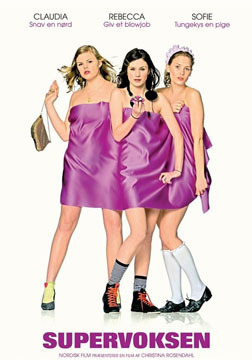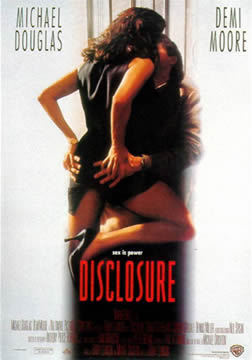- 西瓜云1
- HD

风雨故人情
- 主演:
- 伊迪斯·伊万斯,LallyBowers,伊丽莎白·塞拉斯,海莉·米尔斯,TokeTownley,费利克斯·艾尔默,黛博拉·蔻儿,约翰·米尔斯
- 备注:
- 超清
- 类型:
- 剧情片
- 导演:
- 罗纳德·尼姆
- 年代:
- 1964
- 地区:
- 美国
- 语言:
- 英语
- 更新:
- 2023-05-04 15:46
- 简介:
- 一位祖母为她16岁的孙女劳雷尔(Laurel)找了一位家庭教师,她设法通过揭露他们的过去来赶走每个人,创下一周内三个人的记录!当一位有着神秘过去的求职者设法得到这份工作时,劳雷尔发誓要揭露她。与此同时,劳雷尔的已婚离异已婚母亲试图让她回来...详细
一位祖母为她16岁的孙女劳雷尔(Laurel)找了一位家庭教师,她设法通过揭露他们的过去来赶走每个人,创下一周内三个人的记录!当一位有着神秘过去的求职者设法得到这份工作时,劳雷尔发誓要揭露她。与此同时,劳雷尔的已婚离异已婚母亲试图让她回来
A ‘60s drawing-room pablum intelligently notifies you that a doting grandmother can’t be a qualified guardian of a petulant teenage girl who is scarred by the her parents’ failed marriage, and it is lucky for her that her mother still wants her, who has remarried and a bun in the oven. Based on Enid Bagnold’s successful 1955 play, Ronald Neame’s film version retails the story as if it is earth-shatteringly progressive by fighting the remarried mother’s corner.
But the said mother is absent most of the time, the film appoints a surrogate in the person of the girl’s new governess of obscure provenance, what follows is the battle of the wits between the odd pair. Laurel (Hayley Mills) is a little terror who risks being too pesky for her age of 16, staying with her grandmother Ms. St. Maugham (Evans) in the latter’s fair estate, with manservant Maitland (John Mills, Hayley’s own father), she is a fibber and self-claimed arsonist, recalcitrant and insolent (“I never shake hands, it’s so animal.”, as if animals do shake hands?). She is bent on exposing the mysterious past of her new governess Miss Madrigal (Kerr), who in turn, after hearing tell of her troubles, tries conscientiously to set Laurel’s headspace to rights, merely because she sees a younger self in her.
With his career segueing from cinematographer, to screenwriter, producer and then director, Neame is savvy enough to intersperse cinematic elements into the stuffy mise en scène. The wide-screen shots of Beach Head are breathtaking, the Pollyanna-shinning-up-another-tree action sequence may disconcert some fainted-hearted, and notably, the film is enlivened by a shrewd color scheme in Technicolor splendor. For example, Ms. St. Maugham is anything but a shrinking violet, and Miss Madrigal’s cerulean cardigan betrays her buoyant spirit of truly caring for Laurel, while Laurel’s mother Olivia (Sellars) is a beige-wrapped contradiction of what Laurel tells about her.
When all is said and done, it is always the thespianism that enraptures you in films like this, Kerr, after Jack Clayton’s THE INNOCENTS (1961), once again plays a governess who comes to rescue her disturbed charges, but here she is more stolid, guarded, even hostile in the beginning, Miss Madrigal’s secret is hers to keep, and her smile only materializes belatedly, after she discerns Laurel’s true self, and when the chips are down, her effusion is palpably affecting, yet not fervid enough to be hammy, Kerr is an actor’s actor whom you can always bank on for her uncanny sensibility, she knows her character’s boundary and within which she acquits herself swimmingly.
If it is frustrating to find out Kerr’s tour de force reaps no Oscar love, you might be delighted by Evans, who receives a second Oscar nomination for her high-toned portrayal Ms. St. Maugham, she can take the short end of the stick without capitulating, sprightly and witty, her grand old lady incarnation hits a high note squarely, and the rapport between her and Kerr blossoms beatifically and tacitly.
To a degree, Hayley Mills and John Mills fare less accomplished, the former’s adolescent charm wanes as her age matures, it is cute for a kid to be naughty, but we all know rebellious teens are not for casual viewing, luckily, Laurel’s obstreperousness is considerably checked when the plot thickens; as for the latter, you can trace a father’s sparkling expectation in the exchange between Maitland and Laurel, even if Maitland’s attitude is as straight as his spine, Sir. Mills has enough sophisticated magnetism to smooth any ruffled feathers left in this chalk garden.
referential entries: Neame’s THE PRIME OF MISS JEAN BRODIE (1969, 8.0/10); Jack Clayton’s THE INNOCENTS (1961, 8.8/10); David Swift’s POLLYANNA (1960, 7.2/10).Title: The Chalk GardenYear: 1964Genre: Drama, MysteryCountry: UK, USALanguage: EnglishDirector: Ronald NeameScreenwriter: John Michael Hayesbased on the play by Enid BagnoldMusic: Malcolm ArnoldCinematography: Arthur IbbetsonEditing: Jack HarrisCast:Deborah KerrHayley MillsEdith EvansJohn MillsElisabeth SellersFelix AylmerLally BowersRating: 7.6/10
"<>"" && "
A ‘60s drawing-room pablum intelligently notifies you that a doting grandmother can’t be a qualified guardian of a petulant teenage girl who is scarred by the her parents’ failed marriage, and it is lucky for her that her mother still wants her, who has remarried and a bun in the oven. Based on Enid Bagnold’s successful 1955 play, Ronald Neame’s film version retails the story as if it is earth-shatteringly progressive by fighting the remarried mother’s corner.
But the said mother is absent most of the time, the film appoints a surrogate in the person of the girl’s new governess of obscure provenance, what follows is the battle of the wits between the odd pair. Laurel (Hayley Mills) is a little terror who risks being too pesky for her age of 16, staying with her grandmother Ms. St. Maugham (Evans) in the latter’s fair estate, with manservant Maitland (John Mills, Hayley’s own father), she is a fibber and self-claimed arsonist, recalcitrant and insolent (“I never shake hands, it’s so animal.”, as if animals do shake hands?). She is bent on exposing the mysterious past of her new governess Miss Madrigal (Kerr), who in turn, after hearing tell of her troubles, tries conscientiously to set Laurel’s headspace to rights, merely because she sees a younger self in her.
With his career segueing from cinematographer, to screenwriter, producer and then director, Neame is savvy enough to intersperse cinematic elements into the stuffy mise en scène. The wide-screen shots of Beach Head are breathtaking, the Pollyanna-shinning-up-another-tree action sequence may disconcert some fainted-hearted, and notably, the film is enlivened by a shrewd color scheme in Technicolor splendor. For example, Ms. St. Maugham is anything but a shrinking violet, and Miss Madrigal’s cerulean cardigan betrays her buoyant spirit of truly caring for Laurel, while Laurel’s mother Olivia (Sellars) is a beige-wrapped contradiction of what Laurel tells about her.
When all is said and done, it is always the thespianism that enraptures you in films like this, Kerr, after Jack Clayton’s THE INNOCENTS (1961), once again plays a governess who comes to rescue her disturbed charges, but here she is more stolid, guarded, even hostile in the beginning, Miss Madrigal’s secret is hers to keep, and her smile only materializes belatedly, after she discerns Laurel’s true self, and when the chips are down, her effusion is palpably affecting, yet not fervid enough to be hammy, Kerr is an actor’s actor whom you can always bank on for her uncanny sensibility, she knows her character’s boundary and within which she acquits herself swimmingly.
If it is frustrating to find out Kerr’s tour de force reaps no Oscar love, you might be delighted by Evans, who receives a second Oscar nomination for her high-toned portrayal Ms. St. Maugham, she can take the short end of the stick without capitulating, sprightly and witty, her grand old lady incarnation hits a high note squarely, and the rapport between her and Kerr blossoms beatifically and tacitly.
To a degree, Hayley Mills and John Mills fare less accomplished, the former’s adolescent charm wanes as her age matures, it is cute for a kid to be naughty, but we all know rebellious teens are not for casual viewing, luckily, Laurel’s obstreperousness is considerably checked when the plot thickens; as for the latter, you can trace a father’s sparkling expectation in the exchange between Maitland and Laurel, even if Maitland’s attitude is as straight as his spine, Sir. Mills has enough sophisticated magnetism to smooth any ruffled feathers left in this chalk garden.
referential entries: Neame’s THE PRIME OF MISS JEAN BRODIE (1969, 8.0/10); Jack Clayton’s THE INNOCENTS (1961, 8.8/10); David Swift’s POLLYANNA (1960, 7.2/10).Title: The Chalk GardenYear: 1964Genre: Drama, MysteryCountry: UK, USALanguage: EnglishDirector: Ronald NeameScreenwriter: John Michael Hayesbased on the play by Enid BagnoldMusic: Malcolm ArnoldCinematography: Arthur IbbetsonEditing: Jack HarrisCast:Deborah KerrHayley MillsEdith EvansJohn MillsElisabeth SellersFelix AylmerLally BowersRating: 7.6/10
"<>"暂时没有网友评论该影片"}
A ‘60s drawing-room pablum intelligently notifies you that a doting grandmother can’t be a qualified guardian of a petulant teenage girl who is scarred by the her parents’ failed marriage, and it is lucky for her that her mother still wants her, who has remarried and a bun in the oven. Based on Enid Bagnold’s successful 1955 play, Ronald Neame’s film version retails the story as if it is earth-shatteringly progressive by fighting the remarried mother’s corner.
But the said mother is absent most of the time, the film appoints a surrogate in the person of the girl’s new governess of obscure provenance, what follows is the battle of the wits between the odd pair. Laurel (Hayley Mills) is a little terror who risks being too pesky for her age of 16, staying with her grandmother Ms. St. Maugham (Evans) in the latter’s fair estate, with manservant Maitland (John Mills, Hayley’s own father), she is a fibber and self-claimed arsonist, recalcitrant and insolent (“I never shake hands, it’s so animal.”, as if animals do shake hands?). She is bent on exposing the mysterious past of her new governess Miss Madrigal (Kerr), who in turn, after hearing tell of her troubles, tries conscientiously to set Laurel’s headspace to rights, merely because she sees a younger self in her.
With his career segueing from cinematographer, to screenwriter, producer and then director, Neame is savvy enough to intersperse cinematic elements into the stuffy mise en scène. The wide-screen shots of Beach Head are breathtaking, the Pollyanna-shinning-up-another-tree action sequence may disconcert some fainted-hearted, and notably, the film is enlivened by a shrewd color scheme in Technicolor splendor. For example, Ms. St. Maugham is anything but a shrinking violet, and Miss Madrigal’s cerulean cardigan betrays her buoyant spirit of truly caring for Laurel, while Laurel’s mother Olivia (Sellars) is a beige-wrapped contradiction of what Laurel tells about her.
When all is said and done, it is always the thespianism that enraptures you in films like this, Kerr, after Jack Clayton’s THE INNOCENTS (1961), once again plays a governess who comes to rescue her disturbed charges, but here she is more stolid, guarded, even hostile in the beginning, Miss Madrigal’s secret is hers to keep, and her smile only materializes belatedly, after she discerns Laurel’s true self, and when the chips are down, her effusion is palpably affecting, yet not fervid enough to be hammy, Kerr is an actor’s actor whom you can always bank on for her uncanny sensibility, she knows her character’s boundary and within which she acquits herself swimmingly.
If it is frustrating to find out Kerr’s tour de force reaps no Oscar love, you might be delighted by Evans, who receives a second Oscar nomination for her high-toned portrayal Ms. St. Maugham, she can take the short end of the stick without capitulating, sprightly and witty, her grand old lady incarnation hits a high note squarely, and the rapport between her and Kerr blossoms beatifically and tacitly.
To a degree, Hayley Mills and John Mills fare less accomplished, the former’s adolescent charm wanes as her age matures, it is cute for a kid to be naughty, but we all know rebellious teens are not for casual viewing, luckily, Laurel’s obstreperousness is considerably checked when the plot thickens; as for the latter, you can trace a father’s sparkling expectation in the exchange between Maitland and Laurel, even if Maitland’s attitude is as straight as his spine, Sir. Mills has enough sophisticated magnetism to smooth any ruffled feathers left in this chalk garden.
referential entries: Neame’s THE PRIME OF MISS JEAN BRODIE (1969, 8.0/10); Jack Clayton’s THE INNOCENTS (1961, 8.8/10); David Swift’s POLLYANNA (1960, 7.2/10).Title: The Chalk GardenYear: 1964Genre: Drama, MysteryCountry: UK, USALanguage: EnglishDirector: Ronald NeameScreenwriter: John Michael Hayesbased on the play by Enid BagnoldMusic: Malcolm ArnoldCinematography: Arthur IbbetsonEditing: Jack HarrisCast:Deborah KerrHayley MillsEdith EvansJohn MillsElisabeth SellersFelix AylmerLally BowersRating: 7.6/10














